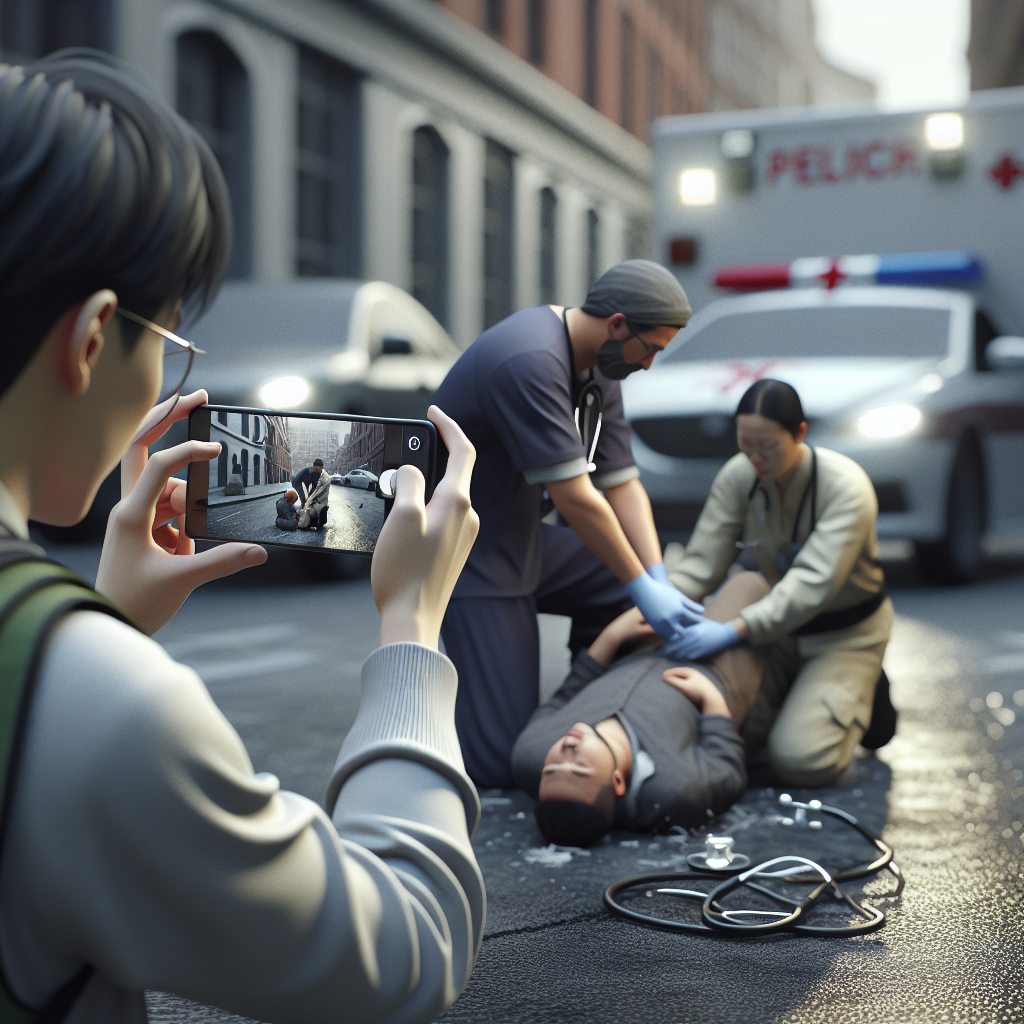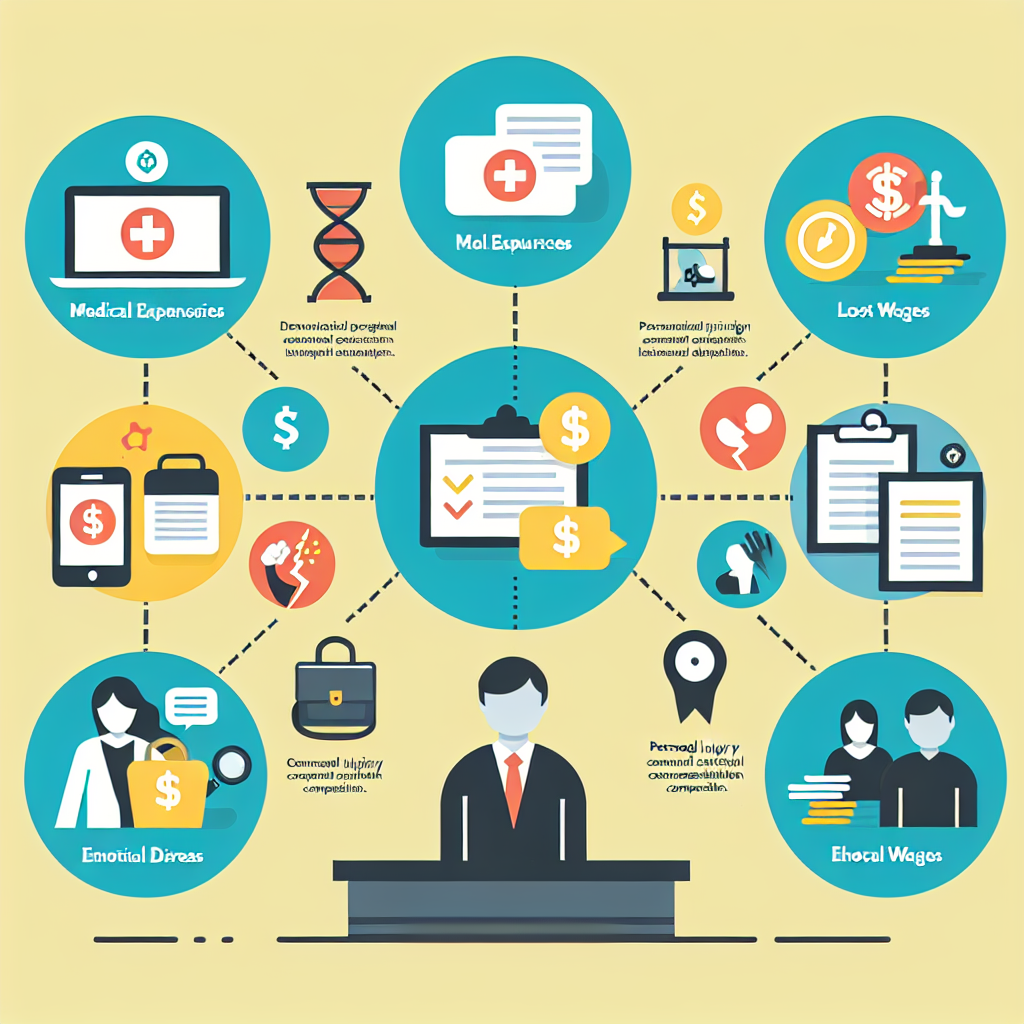What to Do After a Personal Injury Accident: A Step-by-Step Action Plan
Introduction
So, you’ve just been in a personal injury accident. Whether it was a fender bender, a slip and fall at the grocery store, or an unfortunate encounter with a rogue dog, the aftermath can be overwhelming. You might feel like you’ve just stepped off a rollercoaster your heart’s racing, your head is spinning, and you’re left wondering what on earth to do next.
Don’t worry! We’ve got your back. This guide will walk you through a step-by-step action plan to ensure you navigate the murky waters of personal injury law without losing your mind or your wallet. From understanding when to call a personal injury lawyer to figuring out how to file an insurance claim, we’ll cover it all.
First things first: let’s clarify what constitutes a personal injury accident. These accidents can range from car accident injuries and workplace injuries to more complex cases like medical malpractice or even a wrongful death lawsuit. Each scenario comes with its own set of rules and potential compensation, which is why having expert legal representation is crucial.
Key Takeaway: After any personal injury accident, prioritize your health and safety first! Then follow this guide to ensure you understand your rights and options for pursuing compensation.

Understanding Personal Injury Accidents
So, what exactly is a personal injury accident? In simple terms, it’s an event where someone gets hurt due to another person’s negligence or wrongful actions. Think of it as a game of dominoes one careless move can lead to a cascade of unfortunate events that leave someone injured.
Types of Personal Injury Accidents
Personal injury accidents can take many forms, each with its own unique set of challenges. Here are some common types:
- Car Accident Injury: Collisions between vehicles that often lead to serious injuries.
- Slip and Fall Accident: These happen when someone trips or falls due to hazardous conditions on someone else’s property.
- Medical Malpractice: Injuries resulting from negligent medical care by healthcare professionals.
- Workplace Injury: Injuries sustained while on the job, which can range from minor accidents to catastrophic injuries.
- Dog Bite Cases: Injuries caused by dog attacks, often leading to personal injury claims against the owner.
- Premises Liability: When an injury occurs on someone else’s property due to unsafe conditions.
- Truck and Motorcycle Accidents: These accidents can be particularly severe due to the size and speed involved.
Common Causes and Examples
The causes of personal injury accidents are as varied as the types themselves. Here are some frequent culprits:
- Negligence: This is the most common cause, whether it’s distracted driving or failing to maintain safe premises.
- Defective Products: If a product malfunctions and causes harm, you might have grounds for a product liability claim.
- Driving Under the Influence (DUI): Drunk driving remains a leading cause of car accident injuries and fatalities.
- Weather Conditions: Rain, snow, or fog can create hazardous driving conditions that lead to accidents.
If you find yourself involved in a personal injury accident, remember: understanding your rights is crucial. Consulting with a personal injury lawyer early on can help navigate the complexities of your case!
Immediate Steps to Take After an Accident
So, you’ve just experienced a personal injury accident. First off, take a deep breath you’re not alone in this. The steps you take immediately after the incident can significantly impact your health and any potential legal claims. Here’s your action plan:
-
Ensure Safety and Seek Medical Attention
Your safety is the top priority. If you’re able to, move to a safe location away from traffic or hazards. Next, check for injuries yours and others’. If anyone is hurt, call for medical help right away. Remember, some injuries might not be visible at first glance, so it’s wise to get checked out even if you feel fine.
-
Document the Scene and Gather Evidence
This is where your inner detective comes into play! Use your smartphone (or good old-fashioned pen and paper) to document everything:
- Take photos of the scene, including vehicle positions if it’s a car accident or any hazardous conditions in case of a slip and fall.
- Capture any visible injuries.
- Note the date, time, and weather conditions.
- Collect contact information from witnesses these folks can be crucial later!
-
Contact Law Enforcement if Necessary
If your accident involves significant damage or injuries (think: car accidents or construction accidents), it’s time to call in the pros. A police report can be invaluable for your personal injury claim down the line. They’ll document what happened and provide an official account that can support your case.
-
Notify Your Insurance Company
After ensuring everyone’s safety and gathering evidence, notify your insurance company about the incident as soon as possible. This is crucial whether it’s an auto accident claim or a workplace injury. Provide them with all relevant details but avoid admitting fault; let them handle that part.
-
Keep Records of All Medical Visits
If you seek medical treatment (which you should), keep detailed records of all visits including diagnoses, treatments received, medications prescribed, and bills incurred. This documentation will be essential for any future personal injury settlement negotiations.

Contacting Legal Representation
After a personal injury accident, one of the most crucial steps is reaching out to a personal injury lawyer. Think of them as your legal GPS, guiding you through the often confusing terrain of personal injury law.
The Importance of a Personal Injury Lawyer
Why should you consider hiring a personal injury lawyer? Well, navigating the aftermath of an accident can be like trying to solve a Rubik’s Cube blindfolded. A seasoned attorney not only understands the ins and outs of personal injury claims, but they also know how to effectively negotiate with insurance companies who might otherwise try to lowball you on your claim.
How to Choose the Right Accident Attorney
Choosing the right accident attorney is like picking a partner for a three-legged race; you want someone who can keep pace with you. Here are some tips:
- Specialization: Look for an attorney who specializes in your type of case be it a car accident injury, slip and fall accident, or medical malpractice.
- Experience: How long have they been practicing personal injury law? More experience often translates into better outcomes.
- Reputation: Check online reviews and ask for referrals. You want someone with a track record of successful settlements or verdicts.
- Communication: Choose someone who communicates clearly and promptly after all, this is your case!
Questions to Ask During the Initial Consultation
Your first meeting with an attorney should feel more like an informative chat than an interrogation. Here are some essential questions to consider asking:
- What is your fee structure? Understanding how much you’ll pay and when is vital.
- What is my case worth? While they can’t give you an exact number, they should provide a ballpark estimate based on similar cases.
- How long will it take? Knowing the timeline can help manage expectations during what can be a lengthy process.
- What will my role be? Clarifying what you’ll need to do can help foster teamwork between you and your attorney.
Takeaway: Don’t rush into hiring legal representation after a personal injury accident. Take your time to choose wisely; it could make all the difference in securing fair compensation!
Navigating Insurance Claims
When it comes to a personal injury accident, dealing with insurance claims can feel like trying to navigate a corn maze blindfolded. Fear not! We’re here to help you find your way out.
Understanding Your Insurance Policy Coverage
First things first, let’s break down your insurance policy. It’s crucial to know what’s covered and what’s not. Most policies include:
- Liability Coverage: Covers damages you may owe to others.
- Medical Payments: Helps pay for medical expenses regardless of fault.
- PIP (Personal Injury Protection): Covers lost wages and additional costs due to injury.
- Uninsured/Underinsured Motorist Coverage: Protects you if the other party lacks sufficient coverage.
The Process of Filing an Insurance Claim
Filing a claim can be as easy as pie if that pie were made of paperwork and phone calls. Here’s how to slice it:
- Notify Your Insurance: Call your insurer as soon as possible after the accident.
- File the Claim: Provide all necessary information, including police reports, medical records, and any evidence from the scene.
- Follow Up: Keep in touch with your claims adjuster for updates on your claim status.
Tips for Negotiating with Insurance Companies
This is where things can get tricky. Negotiating with insurance companies is like playing poker don’t show your hand too early! Here are some strategies that might help you win big:
- Document Everything: Keep meticulous records of all communications and expenses related to your accident.
- Know Your Worth: Research typical settlements for similar cases to understand what you should expect.
- Stay Calm and Collected: Don’t let the adjuster pressure you into accepting a lowball offer. You have the right to negotiate!
- Consider Legal Representation: Sometimes having an experienced personal injury lawyer can tip the scales in your favor during negotiations.

Pursuing a Personal Injury Claim
So, you’ve been involved in a personal injury accident and you’re wondering what the heck to do next. Well, buckle up, because pursuing a personal injury claim can feel like navigating a maze blindfolded. But fear not! With the right steps and a trusty personal injury lawyer by your side, you can make it through to the other side with some compensation in hand.
The Steps Involved in Filing a Personal Injury Claim
- Consult with a Lawyer: First things first, consult with an experienced accident attorney. They’ll guide you on whether you have a case worth pursuing.
- Gather Evidence: Collect all relevant evidence from your accident photos, witness statements, medical records anything that paints the picture of what happened.
- File Your Claim: Your lawyer will help you file your claim with the appropriate parties, which may include insurance companies or even filing a lawsuit if necessary.
- Negotiate: This is where the magic happens. Your attorney will negotiate on your behalf for a fair personal injury settlement. Get ready for some back-and-forth!
- Reach an Agreement or Go to Court: If negotiations fail, you might find yourself in court. But don’t worry; your lawyer will be there to represent you every step of the way.
Evidentiary Requirements for Your Claim
Your claim’s success hinges on having solid evidence. Think of it like building a case as if you’re assembling IKEA furniture every piece has to fit just right! Here are some key elements you’ll need:
- Medical Records: Documenting injuries is crucial. Keep all medical records related to your treatment from that pesky car accident injury or slip and fall accident.
- Pictures: Snap photos of the scene, any visible injuries, and damage to vehicles or property.
- Witness Statements: Eyewitness accounts can provide valuable insights into how the accident occurred.
- Your Narrative: Write down your account of events while it’s fresh in your mind. Details matter!
The Role of Settlement Negotiations in Personal Injury Cases
You might think that once you file your claim, it’s all about waiting for checks to roll in. Not quite! Settlement negotiations are where both parties (you and the insurance company) try to reach an agreement without going through trial. Here’s how this typically plays out:
Your lawyer will present your case and evidence during these negotiations. Be prepared for some back-and-forth; insurance companies are notorious for lowballing initial offers. Remember: patience is key! If they don’t offer enough compensation for pain and suffering or emotional distress damages, don’t hesitate to push back!
Pursuing a personal injury claim can feel overwhelming at times, but keeping organized and having legal representation makes all the difference. So take a deep breath you’ve got this!
The Potential Outcomes of Your Case
Now that you’ve navigated the murky waters following your personal injury accident, it’s time to explore the potential outcomes of your case. Think of this as the grand finale of a fireworks show you want it to be spectacular, but first, you need to know what to expect!
Pain and Suffering Compensation Explained
Pain and suffering compensation is one of those elusive concepts that can feel like trying to catch smoke with your bare hands. It refers to the non-economic damages you can claim for the physical pain and emotional distress stemming from your accident. Unlike medical expenses or lost wages, which are concrete figures, pain and suffering is more subjective.
In many cases, a personal injury lawyer will use various methods to quantify this type of damage, including:
- The severity and duration of your injuries
- Your age and overall health before the accident
- The impact on your daily life and activities
Understanding Accident Compensation Types
When pursuing a personal injury claim, it’s crucial to understand the different types of compensation you may be entitled to. Here’s a quick rundown:
- Medical Expenses: This includes current and future medical bills related to your injury.
- Lost Wages: If your personal injury accident has kept you from working, you can claim lost income.
- Property Damage: If your vehicle or personal belongings were damaged in the accident, this can be compensated.
- Emotional Distress Damages: This covers anxiety, depression, or other psychological impacts resulting from the accident.
- Punitive Damages: In cases involving gross negligence or intentional harm, punitive damages may be awarded as a form of punishment for the wrongdoer.
What to Expect During the Settlement Process
The settlement process can feel like waiting for a pot of water to boil it takes time! Here’s what you should expect during this phase:
- Your lawyer will assess all evidence: This includes medical records, witness statements, and police reports.
- A demand letter will be sent: This outlines your claim details and requests compensation from the insurance company.
- Nego-tiations may ensue: Be prepared for back-and-forth discussions; insurance companies often start low!
- A settlement offer will be made: You’ll review this with your attorney before deciding whether to accept or negotiate further.
- If no agreement is reached: Your case may proceed to trial but don’t worry; most cases settle before reaching this point!

Conclusion: Moving Forward After a Personal Injury Accident
So, you’ve navigated the tumultuous waters of a personal injury accident. You’ve gathered evidence, consulted with a personal injury lawyer, and possibly filed an insurance claim. Now what? It’s time to focus on moving forward, both physically and emotionally.
First things first: recovery. Depending on the nature of your accident be it a car accident injury or a slip and fall accident the road to recovery can vary significantly. It’s essential to follow your healthcare provider’s advice diligently. This may include physical therapy or regular check-ups, especially if you’re dealing with catastrophic injuries like spinal cord injuries or brain injuries.
Key Takeaway: Prioritize your health! The better you take care of yourself, the smoother your recovery will be.
Understanding Your Legal Options
If you haven’t already, consider reaching out to a personal injury law firm for guidance on pursuing a personal injury claim. Whether it’s for a motorcycle accident or medical malpractice, having legal representation can significantly impact your case outcome. A skilled accident attorney can help you understand the nuances of settlement negotiation for personal injuries and maximize your personal injury settlement.
Emotional Well-Being Matters Too
Don’t overlook the emotional toll that accidents can take. Many victims experience anxiety or emotional distress after their incidents. Seeking support from mental health professionals is just as crucial as physical healing. Remember, it’s okay to ask for help whether that’s talking things through with friends or consulting with mental health specialists.
Avoiding Common Pitfalls
- Don’t rush into settlements: Insurance companies might push for quick resolutions that don’t fully compensate for your pain and suffering.
- Keep records: Document everything from medical visits to conversations with insurance adjusters to support your case effectively.
- Avoid social media pitfalls: Be cautious about what you post online; anything could be used against you in an insurance negotiation.
The Road Ahead
Your journey doesn’t end with the paperwork; it’s about rebuilding and reclaiming your life post-accident. Whether you’re dealing with an uninsured motorist claim after a hit-and-run incident or pursuing compensation for burn injuries from a defective product lawsuit, staying informed will empower you every step of the way.
The path forward may feel daunting at times, but remember that each step is progress. By focusing on both your physical recovery and legal options, you’re setting yourself up for success in navigating this challenging phase of life.
Your Next Steps
- Consult with a personal injury lawyer: If you haven’t yet done so, find one who specializes in cases similar to yours.
- Document everything: Keep track of all medical treatments and expenses related to your recovery.
- Stay proactive: Don’t hesitate to seek help both physically and emotionally as you move forward.
